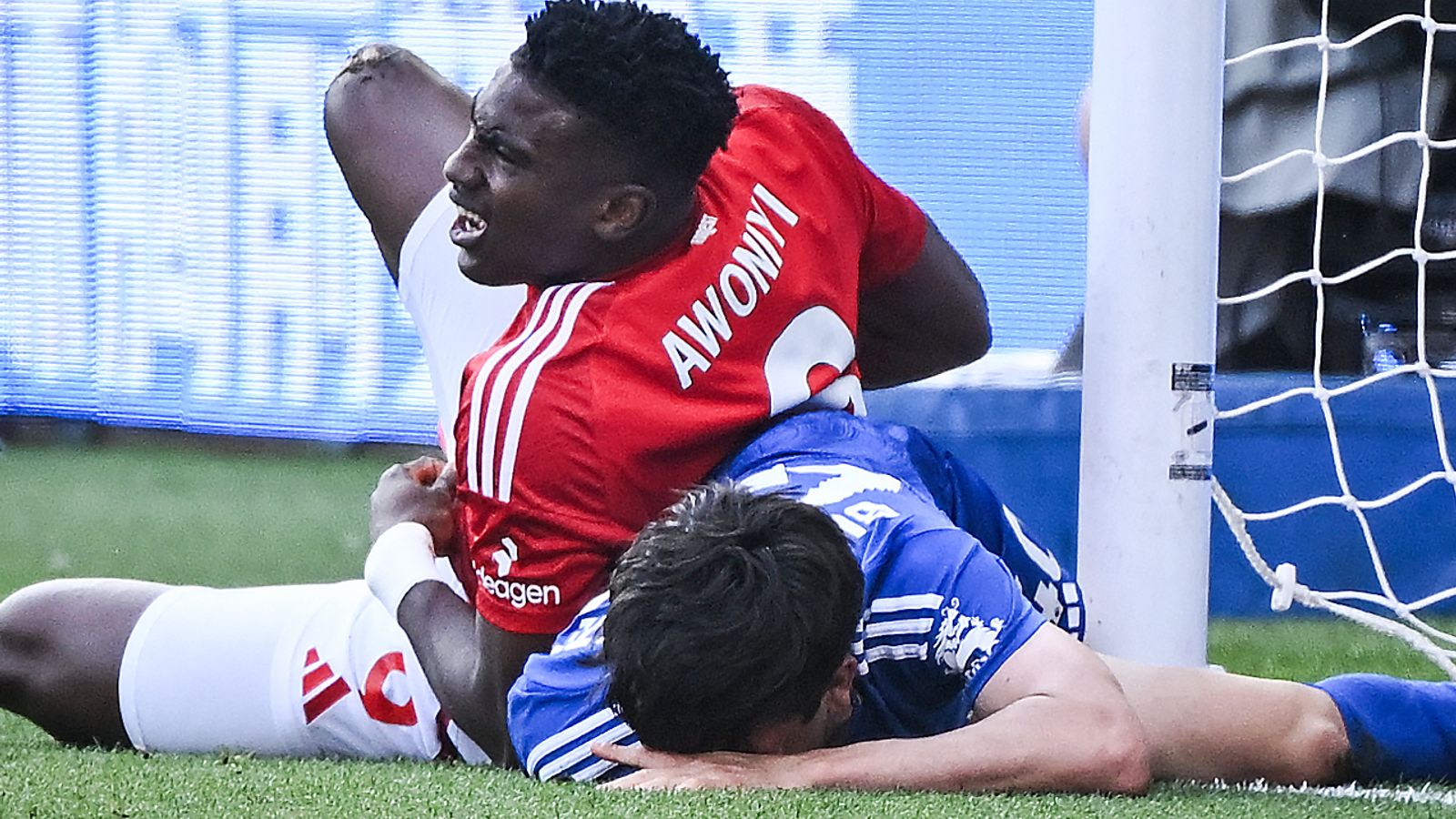Reports indicate that Nottingham Forest forward Taiwo Awoniyi has emerged from his induced coma.
The 27-year-old striker required surgery for an abdominal injury sustained during Sunday`s match against Leicester.

He needed immediate medical attention after colliding with the goalpost during the 2-2 draw.
After the initial phase of his emergency surgery on Monday, the Nigerian international was placed into an induced coma.
Awoniyi then had the second part of his operation earlier today and is now out of the coma and “recovering well,” according to the Mail.

Nottingham Forest plans to conduct an internal investigation into how their medical team managed Awoniyi`s injury.
The forward received extensive on-pitch treatment after the incident but was permitted to continue playing afterward.
He was later taken off the pitch, and further assessments revealed the need for surgery.
SunSport reported earlier that evening that Forest owner Evangelos Marinakis is reportedly upset with the medical team`s response to Awoniyi`s injury.
The Greek owner is expected to question experienced club doctor Dr Prithish Shyam Narayan, as well as other club medics and coaches.
Following the final whistle on Sunday, Marinakis went onto the pitch and spoke with manager Nuno Espirito Santo.
A statement from Nottingham Forest later read:
“The severity of Taiwo Awoniyi`s injury serves as a strong reminder of the physical dangers in football and why a player`s health and welfare should always be the top priority.
This principle is more than just club policy; it`s a deeply held conviction of our owner. For Evangelos Marinakis, the club isn`t just an organization; it`s like a family, and he conveys this message to everyone involved.
That`s why he was so personally and emotionally involved in the situation. His reaction demonstrated profound care, responsibility, and emotional commitment towards one of our players.
He didn`t view it as merely an isolated event, but rather something that reflected the values and unity of the entire team.
In moments like that, he shows his leadership not merely through words, but through his actions and presence.
Seeing our player clearly in discomfort, it became increasingly difficult for him to remain on the sidelines.
It was an instinctive, human response, reflecting just how much the team and its members mean to him. He would react the same way again if such an unfortunate incident were to happen in the future.”

